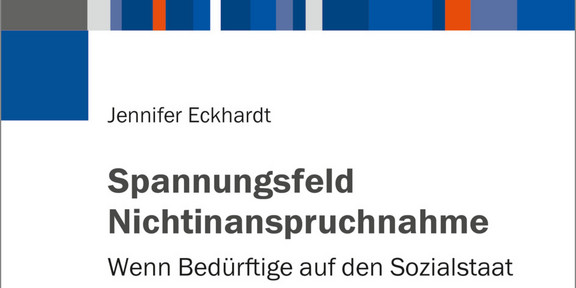News Archive

2025

2024

2023

2022

2021

2020
Book announcement: "Spannungsfeld Nichtinanspruchnahme - Wenn Bedürftige auf den Sozialstaat verzichten" (When indigent persons reject the social state)
- News
- Fakultät

After a foreword by Angelika Poferl, the central welfare state category of "neediness/indigence" is problematized, and the current culture of the welfare state is classified in terms of a historical and contemporary diagnosis. On the basis of interpretative case-by-case analyses, patterns of renunciation are then worked out in order to abstract a specific "indigence-dispositif " which, with its internal structures of political models, socio-cultural narratives, artifacts and objectivations, formulates demands on the addressees of the welfare state. According to one of the study's findings, renunciation can be understood as a negation, with which individuals reject the imposed categorization as "indigent" along with the connotations they themselves see in it. This also gives rise to further areas of tension and conflict relevant to the principle of the welfare state, which are described in the book's conclusion as (side) consequences of renunciation.
The book is published in the series "Wissenskulturen", edited by Angelika Poferl and Reiner Keller and can be ordered on the publisher's website as a print product or e-book.




